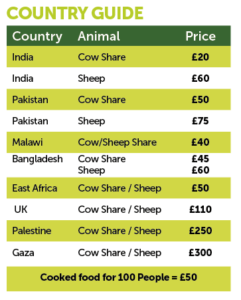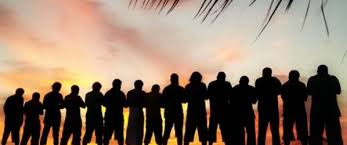
Tag: selfishness

Praise be to Allah.

Mankind was one nation, believing in Tawheed, then they differed. Some of them believed and some disbelieved. So Allah sent the Prophets AS with glad tidings and warnings, so whoever believes will enter Paradise and whoever disbelieves will enter Hell. The conflict is still going on between belief and disbelief, truth and falsehood, and will continue until Allah inherits the earth and everyone on it.
Islam is the religion for all of mankind, and Allah has commanded us to convey it to all people. This can only be achieved if we are strong, and strength is based on faith and unity. Hence Allah has commanded all the believers to adhere to His religion and to be united, and not to be divided. Allah says (interpretation of the meaning):
“And hold fast, all of you together, to the Rope of Allah (i.e. this Qur’an), and be not divided among yourselves
[Aal ‘Imran 3:103]
Division, differences and disputes are the cause of the ummah’s defeat, as Allah says (interpretation of the meaning):
“And obey Allah and His Messenger, and do not dispute (with one another) lest you lose courage and your strength departs, and be patient. Surely, Allah is with those who are As-Saabiroon (the patient)”
[al-Anfaal 8:46]
Unity and coming together are among the basic principles of Islam, and there are many aspects of unity in Islam, such as One Lord, one Book, one Prophet, one religion, one qiblah, one ummah.
In order to achieve the unity of the ummah, Islam urges us to adhere to the jama’ah (the group which follows the Qur’an and Sunnah). The Messenger (peace and blessings of Allah be upon him) explained that the hand of Allah is with the jama’ah, and that whoever deviates from that will be in Hell. Allah has enjoined coming together for all acts of worship in order to achieve this unity. Allah addresses the Ummah as one group in all rulings to indicate that they are one ummah, like one body. There is no difference between them; the commands and prohibitions are addressed to all.
Dearest brothers and sisters of the Ummah of Muhammad (peace and blessing be upon him), when we look around the globe today we see the Ummah has become selfish. We don’t see anyone caring for the Ummah, looking out for others and showing empathy towards those who are needy and the suffering. We see an Ummah suffering form individualism, everyone cares about ‘his own’. His own family, his own house, his own children, his own job, his own life and his own future.
The Ummah is devoid of men and women who stand up for the Ummah, who cry for the Ummah. Or even brothers and sisters who PRAY for the Ummah – Allahul Musta’aan.
I absolutely loathe selfishness and self-centred, self-absorbed, self-conceited individuals. If everyone is going to just care for themselves, who will stand up for the oppressed? Who will speak up for those who have been wronged? Who will stop injustice? Who will free the innocent prisoners? Who will protect the orphans and the widows? Who will be there for the lonely ones and the elderly? If you and I refuse to help them and ignore their cries, then I swear by Allah on His Majestic throne – nobody will help them! Nobody! Simply because we were too bothered and busy about earning the next dollar! We were too engrossed in keeping ourselves in shape. Wealth made us negligent. Materialism deceived us in thinking the world is forever.
If the above is true, then may I ask, what difference is there between us and animals? Animals just eat and rest and sleep, so do we. So do those who disbelieve in Allah.
“Let them (disbelievers) eat and enjoy themselves and be diverted by [false] hope, for they are going to know.” (15:3)
This story may only be an anecdote, but it reflects a very powerful lesson:
In a forest, there lived three bulls: a red bull, a black bull and a white bull. Among them lived a lion. The lion never felt he was king of the forest. He felt outnumbered by three bulls, which he was.
One day, the lion said to the red bull and the black bull: “That white bull is so large and white and can be spotted easily in through the trees of our forest. My colour is similar to yours. Let me eat the white bull, and the three of us will blend in well together. Then we will be safe in the forest.”
The red bull and the black bull said: “Go ahead, eat him.”
So the lion ate the white bull.
A few days later, the lion said to the red bull: “You and I look alike, your colour and mine are similar. What do you say I eat the black bull, and the forest will be ours.”
The red bull replied: “Go ahead, eat him.”
And so the lion ate the black bull.
A few days later the lion said to the red bull: “Today I think I will eat you.”
The red bull said: “Let me call my friends to rescue me!”
The lion replied: “Go ahead, call them.”
But the red bull cried out instead in dismay: “I know was eaten the day the white bull was eaten.”
Now reflect upon this Hadith:
Thawban – radiallahu ‘anhu – the freed slave of the Prophet sallallahu ‘alayhi wa sallam. He related that the Messenger of Allah said: “The nations are about to call each other and set upon you, just as diners set upon food.” It was said: “Will it be because of our small number that day?” He said: “Rather, on that day you will be many, but you will be like foam, like the foam on the river. And Allah will remove the fear of you from the hearts of your enemies and will throw wahn (weakness) into your hearts.” Someone said: “O Messenger of Allah! What is wahn?” He said: “Love of the world and the hatred for death.”
Sahih: Related by Abu Dawud (no. 4297), Ibn ‘Asakirin in Tarikh Dimashq(2/97/8) and others.
This hadith explains the first form of weakness, which has befallen the ‘Ummah in all corners of the world, as being a result of inclination to this world, love of it, and being preoccupied with it, whilst turning away from the Hereafter, being distant from it and hatred of death. Hatred of death is a sign of loving this world, since the one who loves this world, hates death. Since, with death, comes the meeting with Allah – the Most Perfect.
Some Benefits of this Hadith
From the hadith, we can conclude the following:-
- That the disbelievers attentively observe the Muslim ‘Ummah and study their condition, when they see a weakness they strike at it and if they see a barrier, they destroy it. When they see that the ‘Ummah cannot defend itself, they do not show mercy, since they are the enemies of Allah. So they hate the Muslims because they (the Muslims) call to the worship and obedience of Allah.
- The Muslim lands possess many riches, being sources of goods and blessings. This is why the enemies of Allah desire these lands and try to conquer them.
- The ‘Ummah has reached a level where it cannot defend its honour, riches nor wealth from its conquering enemies.
- The disbelievers have divided the conquered lands of the Muslims between themselves, just like diners when gathered around their dish – what do they do? Each of them takes their portion until he is full; and he will not be content with that which is in his plate, except with that which fills. The Prophet sallallahu ‘alayhi wa Sallam, warned us about this fact – the cutting up of the Muslim lands, for he said: “You will form different armies, an army in Greater Syria (ash-Sham), an army in ‘Iraq and an army in Yemen.” I asked: “Which one shall I be with O Messenger of Allah?” He said: “I advise you with the (army) of ash-Sham and whoever refuses then let him join Yemen and beware. For indeed Allah – the Mighty and Majestic – has guaranteed ash-Sham and its people for me.” Sahih: Related by Ahmad (5/33), Abu Dawud (1/388).
- That the disbelievers do not fear the Muslims. At the time of the Prophet sallallahu ‘alayhi wa sallam when the disbelievers heard that the Prophet was preparing to engage them in battle, they would become fearful and turn on their heels. This is what happened at the battle of Tabuk. At this battle, the Prophet sallallahu ‘alayhi wa sallam travelled a months journey to fight the Romans, when they heard of the Messenger of Allah’s, sallallahu ‘alayhi wa sallam, approach they fled. So the Prophet sallallahu ‘alayhi wa sallam said: “I have been given five (things) which no one else before me has been given. I have been aided with fear – a distance of one month’s traveling… “ Related by al-Bukhari (1/436) and Muslim (5/3-4) from Jabir ibn ‘Abdullah radiallahu ‘anhu. Allah the – the Highest – states: “Soon We shall cast terror into the hearts of the disbelievers, for that, they made shirk, for which He had sent no authority.” [Al-Qur’an 3:151]
Indeed, fear is a weapon, which Allah implants in the hearts of His enemies. This is why the strength of the Muslims, is not in their great numbers – weapons or wealth – but it is in their ‘aqidah (belief) and they’re adhering to it. For today there are plenty of Muslims, but they are like foam, like the foam carried by the waves. And their riches are many but cannot be for them. Rather, it has become the possession of their enemies. For example, The Muslims today approximate over one billion and they grow in number every day. However, at the same time they are the weakest of nations in every country they are in, being persecuted – why?
Because they have become like foam, like the foam on the waves. Also, the lands of the Muslims possess many riches and minerals, but where does it all end up? With the disbelievers in Europe or America, or it goes to the Jews of Palestine. The Muslim oil constitutes approximately one-third of the world’s reserves, but the Muslims are the poorest of people – why?
Because they do not possess anything from their Din (religion), except a name. So they call to it, but all their riches now belong to their enemies.
O Lord of the Worlds, O Ever-living One, O Self-Existing One!
O Allah! Unite the Muslims.
O Allah! Save us from disunity.
O Allah! Make us brothers like the Ansaar RA and the Muhajireen RA.
O Allah! Protect us from Racism and Nationalism.
O Allah! Save us from differences.
O Allah! Help us to be One.
O Allah! Grant us sympathy and empathy for the Ummah.
O Allah! Save us from selfishness.
Ameen Ya Rabbal-Alameen.
Ismail Ibn Nazir Satia (One who is in dire need of Allah’s Forgiveness, Mercy and Pleasure).
1 Muharram 1437
Ya Rabb! Place the reward of this article in the scales of my Late Father RH, in his mizaan of Hasanaat. I believe he was a man who stood up for the Ummah, he wasn’t a selfish man. He believed in Unity and empathy. He taught me dignity and self respect. I learned from him not to ‘go with the flow’, rather be a force against the tide – no matter what the pressure, no matter what the odds are. And never fear the criticism of the critics. Most importantly, he taught me how to place all reliance on Allah. Because, if Allah can’t help you, nobody can! Two years after his demise, his legacy remains in sha Allah…